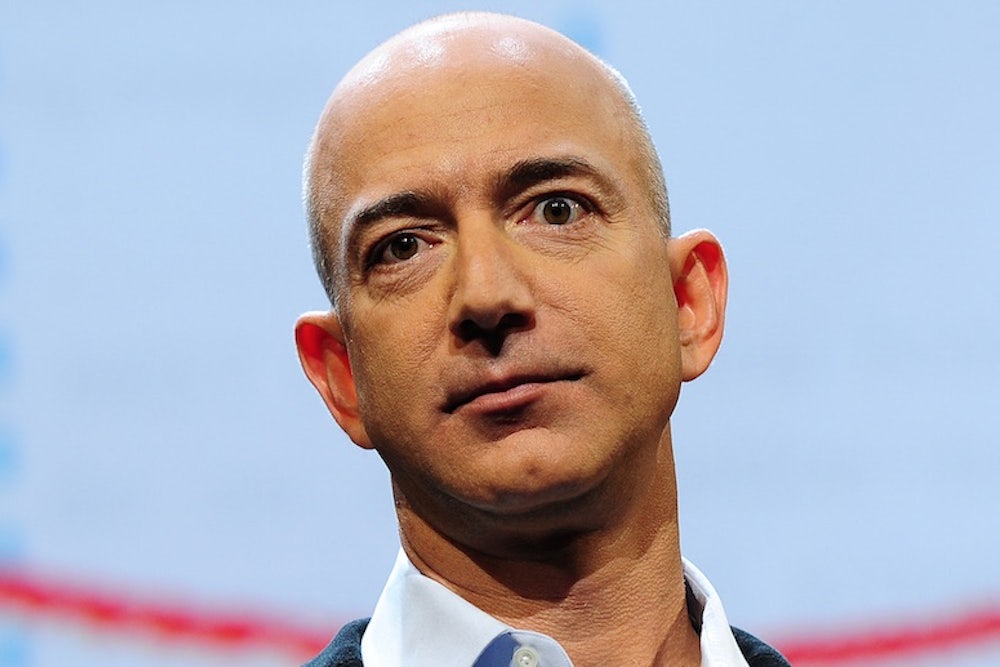Thursday morning, The New York Times announced that after a bitter, months-long, highly public dispute, Amazon and Hachette have reached an agreement over how they will set e-book pricing. The mega-seller and the publisher did not immediately disclose the terms of the deal, but did reveal that Hachette now has the ability to set e-book prices, the original point of contention between the two companies. Michael Pietsch, the CEO of Hachette, called it “great news for writers,” while Amazon executive David Naggar declared it “a great win for readers and authors alike.”
But that’s not to say the war between publishers and Amazon is over—or that the result of this particular battle is necessarily as positive for publishers (and readers) as Hachette is making it out to be.
Since May, when Amazon requested that Hachette lower its e-book prices (Amazon aims to price all e-books at $9.99 or lower) and Hachette refused, Amazon has openly run a dirty and twisted—albeit perfectly legal—campaign to bend Hachette into submission. Their tactics ranged from denying the pre-order function for Hachette books, to delaying the delivery of Hachette books for weeks at a time, to making some Hachette authors’ works flat-out unavailable. Hachette, some of its authors, and other literary insiders like agent Andrew Wylie fought back with a campaign of their own, drawing attention to Amazon’s bullying in the press. Bestselling writer Douglas Preston composed an open letter to the company, which eventually ran in a full-page spread in The New York Times with signatures from 909 writers, including Elizabeth Gilbert, John Grisham, Stephen King, and Donna Tartt.
The fallout for each company, as the Times noted in July, was that “Hachette is losing sales and Amazon is reaping a considerable amount of bad publicity.” The fallout for readers, of course, was that the single largest bookseller in the country was no longer reliably distributing any and every title.
Resolving the dispute, then, would seem to be a net win for Amazon, Hachette, and readers alike. But emerging intact from a battle with a hungry giant still intent on devouring you is not necessarily something to celebrate. The battle between Hachette and Amazon has been painted by some in the media as a fight between two corporations bent on enhancing their bottom lines, but to compare the two is more than foolhardy, it ignores the larger facts.
As my editor Franklin Foer noted in October, a recent study found that Amazon commands a 67 percent share of the e-books market, and 41 percent of the all new book sales. Their piece of the pie grows larger with every passing year. As Foer also remarked,
The company continually finds new schemes for exacting tribute from the houses. Amazon requires a contribution to a “marketing development fund”—which hits publishers for an additional 5 to 7 percent of their gross sales. All the wondrous tools on the Amazon site are open to publishers, but only if they write appropriately sized checks: Pre-order buttons, appearance in search results, and personalized recommendations are hardly enlightened services provided by your friendly bookseller. Sure, Barnes and Noble and other chains have long charged fees for shelf placement, but Amazon has invented a steroidal version of that old practice. There seems to be no limit to Amazon’s demands …
And yet Amazon has pretended to be a victim throughout. “This was the only leverage we had,” remarked Russell Grandinetti, Amazon’s vice president for e-books,in an attempt to explain away their strong-arm practices. But this is clearly untrue: Amazon did not strike a deal with Hachette because they were strong-armed into it. They did so because they wish to continue to squeeze as many pennies as possible from publishers; because they didn’t want other publishers to follow suit; and frankly, because they probably thought they could get away with holding books hostage. Only when the cost of the publicity seemed greater than the cost of freezing out Hachette did they accede to Hachette’s demands.
But let’s be clear about who the winners and losers are here. No matter the details, it’s nearly certain that Amazon will not be missing out on a sizable amount of money over a generous e-book deal with one publisher, and their customer base has not considerably decreased as a result of bad publicity. Hachette, meanwhile, proved they could rile up the publishing industry, corral the big players, and provoke the public’s ire. One could hardly fault them for taking this deal, given that their demands were met. But in doing so they forfeited all of the gains they had made in the larger battle against Amazon.
While it certainly would have hurt Hachette in the short-term to keep up the battle, they should have. What’s at stake here is much bigger than the price of e-books. If Amazon continues to interfere in publishers’ pricing decisions, publishers will be forced to produce more and more high-revenue yielding books, which means decisions about who gets published and who doesn’t will trend even further toward who can sell a lot of books and who can’t. That means the variety of books in the marketplace diminishes even further, and readers see fewer and fewer high-risk, high-reward books on physical and digital shelves.
Amazon has proven they can turn off the faucet whenever they please. Hachette could have proven that, with enough support from their friends in the publishing industry, they can force Amazon to keep the water flowing. But they missed their opportunity.
